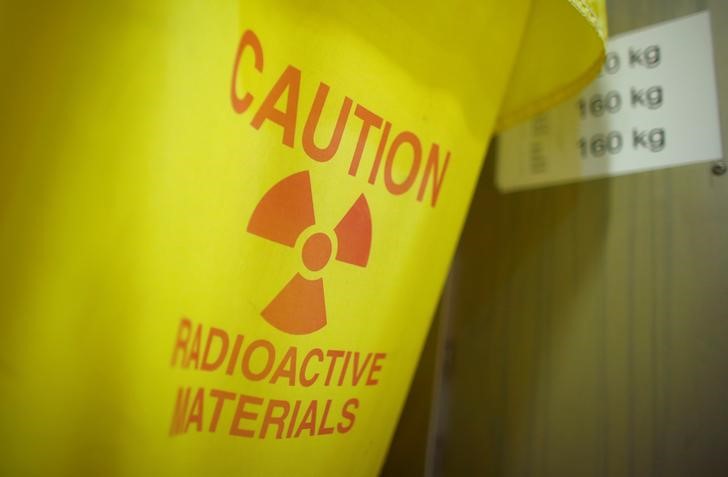TOKYO (Reuters) - Japan pledged to reduce its controversial stocks of plutonium, the world's biggest inventory of the highly toxic material held by a non-nuclear armed state, following pressure from the United States, China and other countries.
The government did not outline by how much and when it will cut the stockpiles of plutonium it holds. Japan shut down most of its reactors that can use the material as fuel after the Fukushima nuclear disaster of 2011.
Japan is the only nation without atomic weapons to have significant amounts of plutonium. This has led to security concerns from China and other neighbouring countries.
Japan held 47 tonnes of plutonium as of the end of 2017, including 21 tonnes stored in preprocessing facilities in Britain and 15 tonnes in France, enough to make thousands of atomic bombs.
Local media reported in June that the U.S. government had asked Japan to trim its stockpiles ahead of an extension this month of a bilateral nuclear cooperation agreement.
"Japan will reduce the size of its plutonium stockpile," the Japan Atomic Energy Commission said on Tuesday in a revision of the country's basic stance on plutonium use issued in 2003.
The Japanese government said on Tuesday in a separate release that it maintains the principle of not owning plutonium whose use is unspecified and of holding all nuclear materials under the International Atomic Energy Agency's safeguards, in keeping with the Nuclear Non-Proliferation Treaty.
"We have stated specific measures to trim plutonium stockpiles," Takahiro Hayashi, director for atomic energy at Japan's Cabinet Office, told reporters ahead of the approval.
Plutonium is the foundation of resource-poor Japan's nuclear fuel cycle, in which spent fuel from nuclear reactors is reprocessed into plutonium and then reused.
But only a limited number of reactors in Japan can use MOX, a blend of uranium and the plutonium recycled from spent nuclear fuel. Four out of six reactors currently operating can use MOX and consume about 2 tonnes of plutonium a year.
